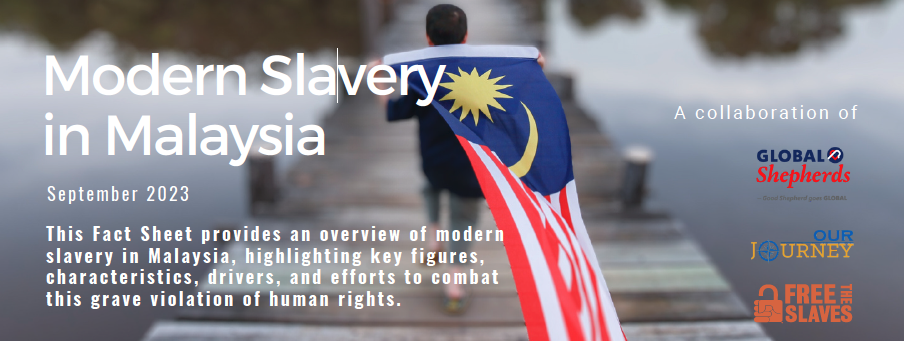In an era when transparency, information, and awareness are keys to driving change, three pioneering organizations – Free the Slaves, Our Journey, and Global Shepherds – have compiled a comprehensive report on modern slavery in Malaysia. Here’s why every member of the public should be informed. Understanding Modern Slavery in Malaysia Modern slavery, a grave violation of human rights, manifests in various forms, including forced labor, human trafficking, forced marriage, and child labor. Its victims often comprise vulnerable groups – migrant workers, children, women, and marginalized communities. Did you know? An estimated 202,000 people in Malaysia are currently ensnared in these heinous practices. Yet, obtaining accurate statistics remains challenging due to the covert nature of these activities and the fear among victims to come forward. The Importance of the Report’s Information Being informed is the first step towards change. By understanding the depth and breadth of modern slavery in Malaysia, you:
- Empower Yourself – Knowledge arms you with the ability to recognize and report suspicious activities. It ensures you don’t inadvertently support businesses or practices that perpetuate slavery.
- Support the Right Stakeholders – Recognizing the organizations genuinely making a difference, like Free the Slaves, Our Journey, and Global Shepherds, allows you to channel your resources, time, and efforts effectively.
- Raise Awareness – Sharing this information within your networks can create a ripple effect, leading to broader societal awareness and collective action
Key Insights from the Report
- Magnitude of Modern Slavery: Consumer electronics and garments from China and Malaysia top the list of at-risk products imported by G20 Countries. Palm oil, a significant export from Malaysia, is also under the scanner.
- Forms of Slavery: From deceptive job promises leading to sexual trafficking to widespread forced labor in sectors like agriculture and construction, the exploitation is pervasive.
- Contributing Factors: Governmental corruption, inadequate labor law enforcement, large migrant and refugee populations, and poverty play into the hands of traffickers.
- Efforts to Combat Slavery: The Malaysian government has taken various steps, from establishing the Anti-Trafficking in Persons and Anti-Smuggling of Migrants Council to the National Human Rights Action Plan of 2018.
A Call to Action The report serves as more than just a compilation of facts; it’s a call to action. By arming ourselves with this knowledge, we can support the commendable work of organizations like Free the Slaves, Our Journey, and Global Shepherds. Understanding the plight of victims, like Abegail Compuesto who sought a better life but was trapped in a web of deceit, reinforces the urgency of the situation. Read her full story here. Collaborate, Support, and Advocate The report underscores the essential work of NGOs and civil society organizations in Malaysia. By raising awareness, supporting victims, and advocating for stronger legislation, they are the vanguards in this fight against modern slavery. The Global Shepherds work diligently to safeguard women and children, emphasizing the need for system reforms and a trauma-informed approach. Our Journey focuses on ensuring migrants, refugees, and other non-citizens in Malaysia have a support system aligned with international standards. Free the Slaves is at the forefront of the global movement to end the conditions that allow modern slavery to exist.

